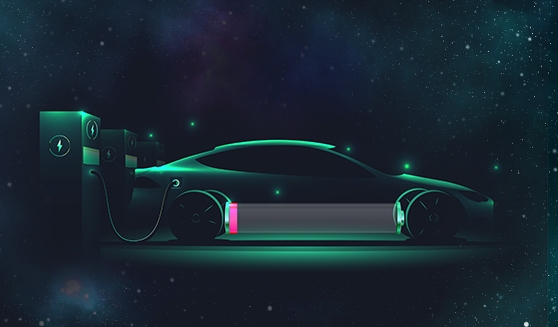
Tech careers with impact: The power of investing
If you’ve ever thought about becoming a tech investor, read this – learn why investors are the quiet force shaping the future of the industry.


When fuel-powered cars first came into prominence, their owners faced a dilemma: where to fill up their tanks?
Soon, the ubiquitous gas stations sprouted up across countries. Battery-charged electric vehicles have a similar challenge – where can they power up?
According to Car & Driver, Saudi-backed Lucid Air Dream Edition Range has the world’s highest range and can run 520 miles on a single charge, followed by the Tesla Model S Long Range of 405 miles. While that’s more than enough to drive around town, frequent long drives, especially across the length of Saudi Arabia, North America or Europe would require a large electric charge grid to give consumers comfort that they won’t be left stranded on the highway.
While EV car sales have taken off, the lack of charging stations remain a key missing ingredient. While charging their EVs at home is likely the first port of call for owners, the auto industry believes the emergence of an EV charging grid is vital for the widespread use of EV cars.
“While many EV drivers use privately funded chargers at home or work, we still expect 20% to 50% of charging to take place on the road and at destination chargers, depending on the region,” according to the Boston Consulting Group.
“And according to a recent survey of European EV drivers by NewMotion, 33% of respondents cannot install a CP (charging point) at home. Without public charging infrastructure, therefore, EV adoption will remain slow. And with the private sector left to its own devices, this dilemma could bring EV markets to a standstill.”
But governments and the wider industry is stepping up.
In the UAE, The Dubai Electricity and Water Authority recently launched and expanded its EV Green Charger Service to promote sustainable transportation solution in the emirate. The utility provider boasts 300 green chargers in the emirate.
“The initiative is a starting point for the UAE to achieve sustainable development and build a competitive economy in a carbon-free future,” said Sheikh Mohammed bin Rashid Al Maktoum, Vice President and Prime Minister of the UAE and Ruler of Dubai. “This is by diversifying our energy sources to ensure a sustainable environment with a strong and advanced infrastructure.”
In Saudi Arabia, the Marriot Riyadh Diplomatic Quarter launched the kingdom’s first ever electric vehicle charging station in November.
“These charging stations are another step in making Marriott Riyadh a more sustainable hotel,” said Muin Serhan, general manager of Riyadh Marriott Hotels. “With electric vehicles becoming more mainstream, this will allow us to adapt our hotel infrastructure to meet a growing need for EV charging and also help us in becoming more environmentally friendly by supporting the use of electric vehicles that emit no tailpipe emissions.”
The country is also looking to boost use of EVs in Riyadh, with the aim of having at least 30% of cars in the capital running on battery power.
In Morocco, another major Middle East nation that is making its mark in the EV space, Tesla installed its first charging stations in Morocco – and Africa.
And in Egypt, renewable energy company Infinity is looking to set up 6,000 EV charging points in Egypt. The company said it will build, operate, and maintain the chargers, and also provide maintenance and technical support to its partner El Nasr Automotive during the testing phase of newly-imported EVs by the state-owned company.
DEVELOPING THE EV CHARGING GRID
Globally, car manufacturers are investing US$250 billion in electric vehicle development, which will necessitate a corresponding investment running into billions of dollars to support the EV infrastructure.
And there are many stakeholders involved, which would require a tag-team effort that will help spread the costs — and create a uniform grid across the industry. The main stakeholders will include federal and local governments, electrical utilities, retailers (such as supermarkets, retailers, restaurants, and EV charging equipment makers and, of course, the major automakers.
“Each player in this group is a potential beneficiary of mainstreaming public EV charging — whether it be meeting net-zero decarbonization goals and mandates or supporting a business model to achieve top- and bottom-line expectations,” according to a PricewaterhouseCoopers report.
By 2030, the number of EVs on America’s roads are expected to rise to 18.7 million, according to Edison Electric Institute, from its current level of 1.4 million.
“Given a central estimate of 5% penetration of EV total vehicle market by 2030, the market could require about 120,000 to 235,000 fast-charge points or about 30,000 to 60,000 charging locations (in the U.S. alone),” according to PricewaterhouseCoopers.
Interestingly, smaller locations will probably drive adoption, as they’ll be more numerous and hence more convenient for consumers.
“Taking these considerations into account, we estimate the total fast-charging network in 2030 to be close to 60,000 locations with at least some of these—perhaps most—at existing gas stations,” PWC noted.
We can expect small and large EV charging points to dot the landscape across the world and in the wider Middle East as EV adoption takes off. ©

If you’ve ever thought about becoming a tech investor, read this – learn why investors are the quiet force shaping the future of the industry.

Tech generalists will enable emerging technologies to integrate across industries and societies in meaningful ways. We still need specialists – but we also need big-picture people.

Discover three tech sectors facing a talent shortage this year. Could you find your ideal role in a high-demand sector like cybersecurity, cloud computing, or artificial intelligence?

If you’ve ever thought about becoming a tech investor, read this – learn why investors are the quiet force shaping the future of the industry.

Tech generalists will enable emerging technologies to integrate across industries and societies in meaningful ways. We still need specialists – but we also need big-picture people.

Discover three tech sectors facing a talent shortage this year. Could you find your ideal role in a high-demand sector like cybersecurity, cloud computing, or artificial intelligence?